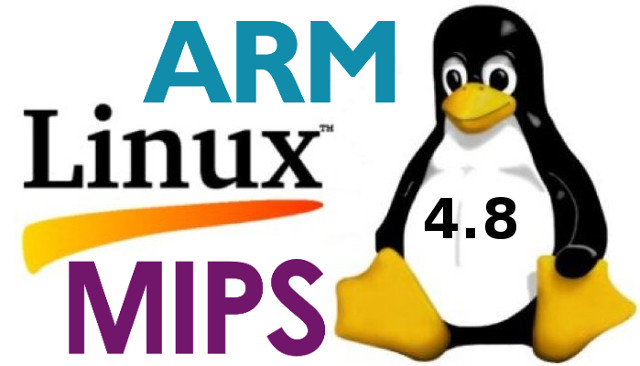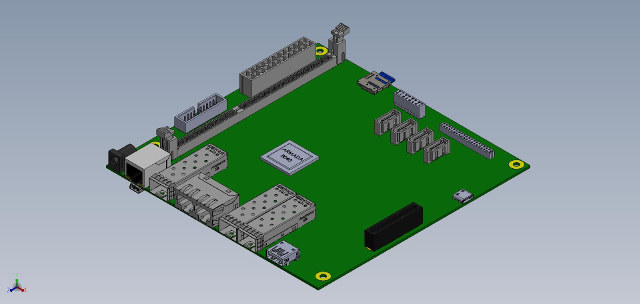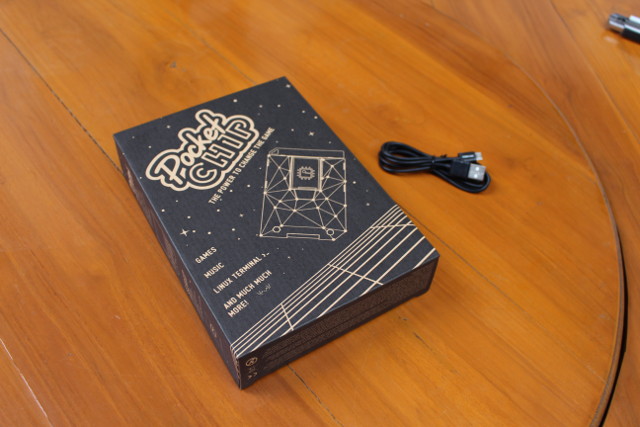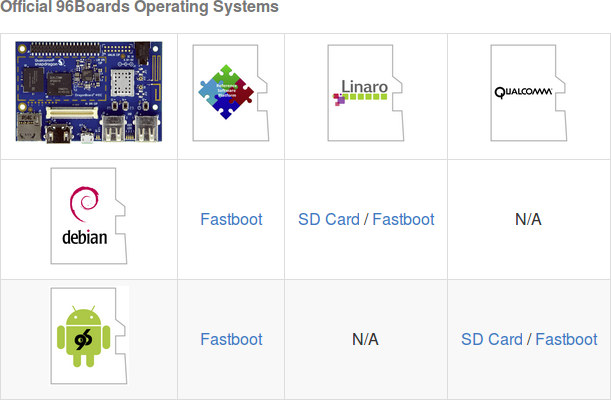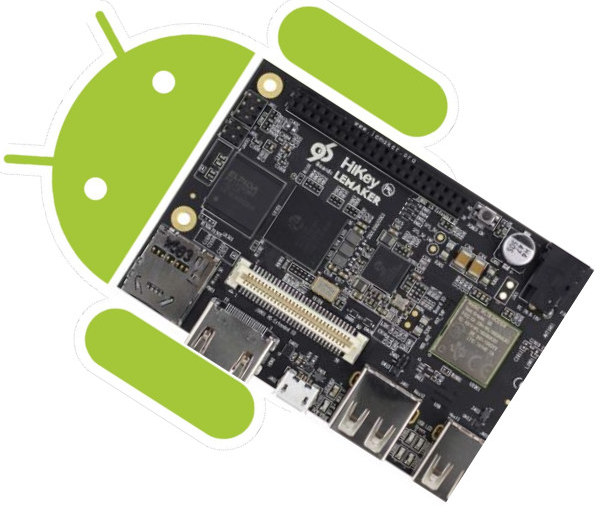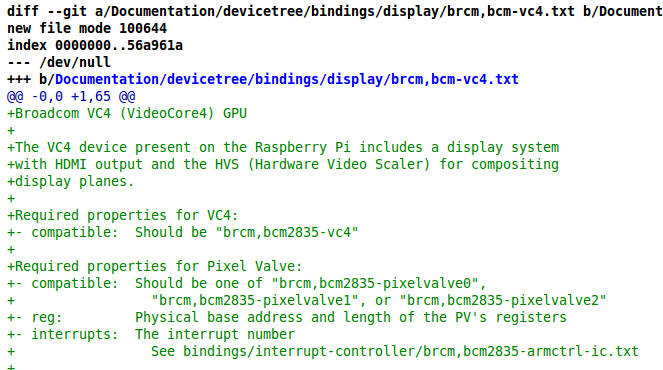Linus Torvalds has officially released Linux 4.8 last Sunday: So the last week was really quiet, which maybe means that I could probably just have skipped rc8 after all. Oh well, no real harm done. This obviously means that the merge window for 4.9 is open, and I appreciate the people who already sent in some pull requests early due to upcoming travel or other reasons. I’ll start pulling things tomorrow, and have even the most eager developers and testers hopefully test the final 4.8 release before the next development kernels start coming 😉 Anyway, there’s a few stragging fixes since rc8 listed below: it’s a mixture of arch fixes (arm, mips, sparc, x86), drivers (networking, nvdimm, gpu) and generic code (some core networking, with a few filesystem, cgroup and and vm things). All of it pretty small, and there really aren’t that many of them. Go forth and test, […]
ARMADA 8040 Networking Community Board with a Quad Core ARM Cortex A72 SoC Coming Soon for $300 and Up
Developers interested in ARMv8 server or networking boards are starting to have more and more affordable choices. After AMD Opteron A1100 series based LeMaker Cello board, and Softiron Overdrive 1000 server, SolidRun is now working on ARMADA 8040 networking community board powered by Marvell ARMA8040 quad core Cortex A72 network processor. ARMADA 8040 networking board (mrvl8040) preliminary specifications: SoC – ARMADA 8040 (88F8040) quad core Cortex A72 processor @ up to 2.0 GHz with MoChi architecture System Memory – 4GB DDR4 DIMM by default Storage – 4x SATA 3.0 port + micro SD slot Connectivity – 1x Gigabit RJ45 port, 1x SFP SGMII @ 2.5Gbps, dual 10Gbps copper with auto switchover to dual SFP+ Expansion – 1x PCIe-x4 3.0 slot, Linaro 96Boards expansion slot exposing GPIO, UART, I2C and SPI, Marvell TDM module header USB – 1x USB 3.0 port, 2x micro USB ports Debugging – Console port (UART) over […]
Review of PocketCHIP Hackable Handheld Linux Computer
It’s not that easy to describe PocketC.H.I.P in a couple of words, as it’s so versatile. It’s a Debian based portable Linux computer with a resistive touchscreen and battery, but also a retro gaming console thanks to PICO-8, as well as a hardware development platform for IoT application with expansion header providing access to I/Os including GPIOs, I2C, SPI, UART…, and WiFi and Bluetooth connectivity. Furthermore you can easily dismantle the device, in order to use the CHIP board, based on Allwinner R8 Cortex A8 processor, for a different project. So when Next Thing asked me if I was interested in reviewing Pocket CHIP, I was pretty excited, but when I received it, I scratched my head as there are so many ways to review the item, and it works out of the box with the firmware pre-loaded inside the internal flash, so a getting starting guide would have been […]
Linux 4.6 Release – Main Changes, ARM and MIPS Architectures
Linus Torvalds released Linux Kernel 4.6 earlier today: It’s just as well I didn’t cut the rc cycle short, since the last week ended up getting a few more fixes than expected, but nothing in there feels all that odd or out of line. So 4.6 is out there at the normal schedule, and that obviously also means that I’ll start doing merge window pull requests for 4.7 starting tomorrow. Since rc7, there’s been small noise all over, with driver fixes being the bulk of it, but there is minor noise all over (perf tooling, networking, filesystems, documentation, some small arch fixes..) The appended shortlog will give you a feel for what’s been going on during the last week. The 4.6 kernel on the whole was a fairly big release – more commits than we’ve had in a while. But it all felt fairly calm despite that. Linux 4.5 added […]
Debian on DragonBoard 410c Development Board
I purchased Qualcomm DragonBoard 410c development board last year, and first tested it and run some benchmark on the 96Boards compliant hardware with Android. I found that it was still work-in-progress, and decided to wait before trying Debian on the board. I’ve now done so, and will report by experience installing Debian Linux, playing with the board, and running Phoronix benchmarks to compare it to other ARM Linux boards. Installing Debian on DragonBoard 410c The first challenge is to navigate through the documentation that is not always clear or up-to-date. I eventually ended up on DragonBoard 410c Wiki on Github. You then have to decided which image you want. While there are two official operating systems with Android and Debian, you can three “entities” releasiong their own images. For Debian specifically, you have the Linaro image, and Reference Platform Build (RPB) image. I could not find any changelog or known […]
96Boards Hikey Development Board is Now Officially Supported in AOSP
Hikey is a one of the first 96Boards compliant development board manufactured by either LeMaker in China and CircuitCo in the US, and while the hardware requirements of 96Boards specifications are rather easy to meet, the software requirements including “bootloader (open source), accelerated graphics support (binary or open source), a Linux kernel buildable from source code based from mainline, or the latest Google-supported Android kernel version” are much harder to comply with. Linaro had a very good news for Linaro Connect Bangkok as they announced Hikey board was supported in Android Open Source Project (AOSP). So that means Hikey board will run the latest version of Android like Google Nexus devices, with the advantage of also getting more recent devices. If you want to build an Android image from AOSP just retrieve the source code:
|
1 2 |
repo init -u https://android.googlesource.com/platform/manifest repo sync -j8 |
Grab & extract vendors binaries for Hikey from Google.com. and complete the build:
|
1 2 3 |
source build/envsetup.sh lunch hikey-userdebug make -j8 droidcore |
[…]
Raspberry Pi’s VideoCore 4 GPU Driver Added to Linux Mainline in Kernel 4.4
While your x86 and AMD64 computer will usually boot with Linux mainline without issues, most ARM boards and device won’t, and many of the ones that do boot only support headless mode, and limited functionalities. The Raspberry Pi had been supporting HDMI output with a simple framebuffer for a while, but a developer working on the Videocore 4 (VC4) GPU found inside Broadcom BCM2835 and BCM2836 processors, has recently submitted a patchset to add VC4 GPU to Linux mainline that should make it to Linux 4.4. The commit message does mention some features are still missing, but it’s a start: This pull request introduces the vc4 driver, for kernel modesetting on the Raspberry Pi (bcm2835/bcm2836 architectures). It currently supports a display plane and cursor on the HDMI output. The driver doesn’t do 3D, power management, or overlay planes yet. Via Golem and Sanders. Jean-Luc Aufranc (CNXSoft)Jean-Luc started CNX Software in […]
Linux 4.3 Release – Main Changes, ARM and MIPS Architectures
Linus Torvalds released Linux Kernel 4.3 last week-end: So it *felt* like the last week of the rc series was busy, to the point where I got a bit worried about the release. But doing the actual numbers shows that that really was just my subjective feeling, probably due to the kernel summit and travel back home from Korea. It wasn’t actually a particularly busy week, it’s just that the pull requests were more noticeable in the last couple of days. We had a network update and a late fix for a x86 vm86 mode bug introduced by the vm86 cleanups, but other than that it’s just a collection of various small one-liners all over. Ok, the vm86 mode thing was a one-liner too, it was just slightly more nerve-wracking because it looked scarier than it was before people (Andy) figured out what was going on. The changes from rc7 […]


